Over 30 projects tackling global challenges have been named winners of the World Architecture Festival’s WAFX Awards. These visionary designs excel in using architecture to address critical issues such as climate change, public health, and social inequality. The awards recognize projects across eleven categories, highlighting innovative solutions that shape a better future.
Each of the 33 WAFX winning projects will present on the Festival Hall Stage at WAF. The overall WAFX winner will be announced live during the WAF event which takes place this year in Singapore, at Marina Bay Sands, from November 6-8.
These six projects below represent the winners in the multifamily space, including master-planned communities, mixed-use projects, and novel housing solutions.
Shoupé mixed-use project
by KanLan Studio | Building Technology Winner
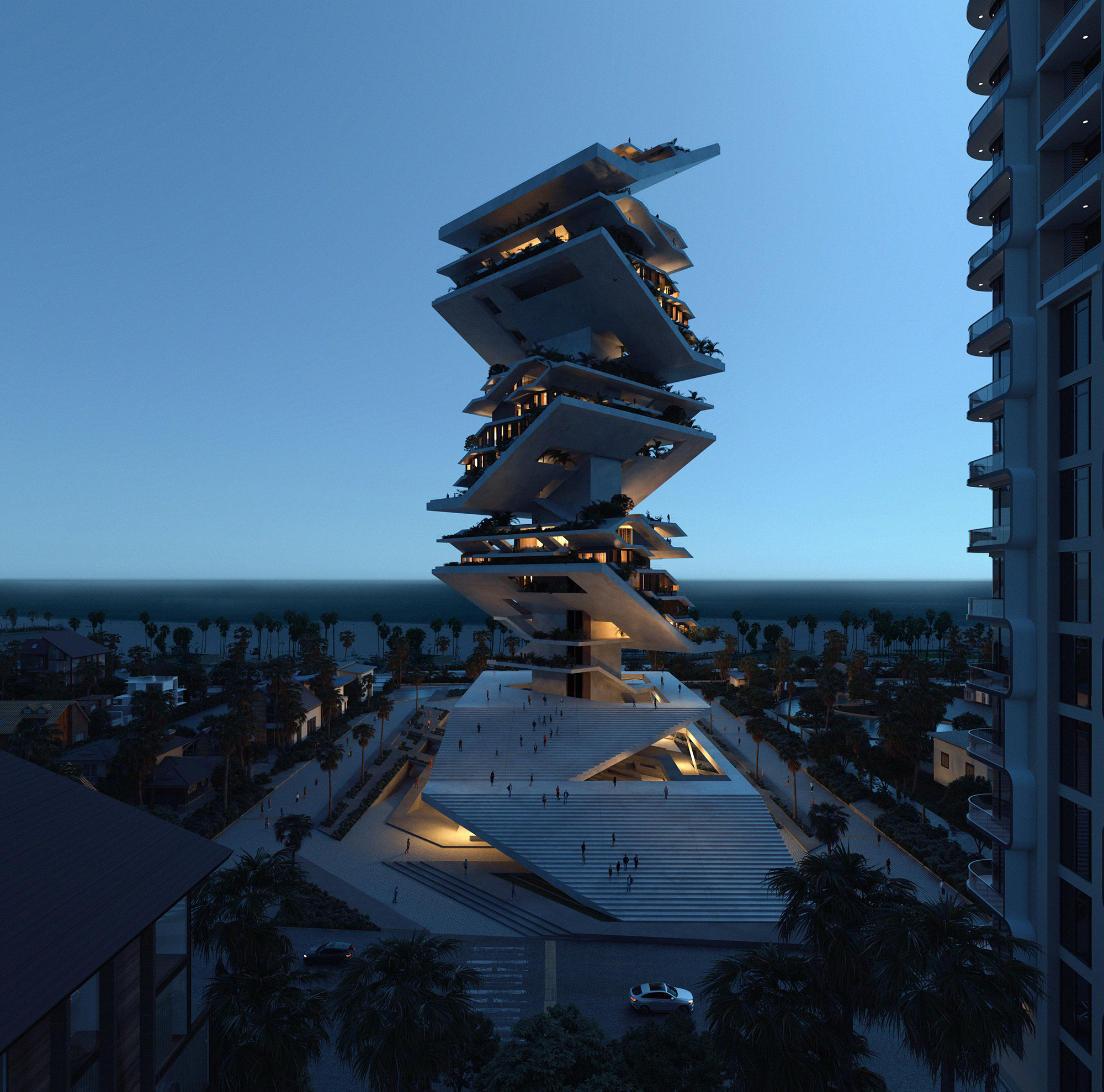
Shoupé is a dynamic, 18-story mixed-use development nestled along the Babolsar coastline. Occupying a 43,000-sf plot, the project encompasses 236,000 sf of space dedicated to compact residential units, shared amenities, and recreational areas.
Designed as a vertical community, Shoupé features three distinct neighborhoods, each offering unique perspectives of the sea and city. These neighborhoods are interconnected by a network of houses, shops, pathways, and plazas, cascading down the building’s slope to create a vibrant public realm.
A two-story podium at the base of the tower serves as a bridge between the urban center and the beach. This pedestrian-friendly area houses restaurants, cafes, lounges, and markets, transforming Shoupé into a bustling hub of activity. Residential areas are thoughtfully integrated within each neighborhood, offering multifamily residents a convenient and communal lifestyle.
Architect: KanLan Studio
Location: Babolsar, Iran
Gasometer
by Mei architects and planners + Peter Bastian Architekten | Carbon and Climate Winner
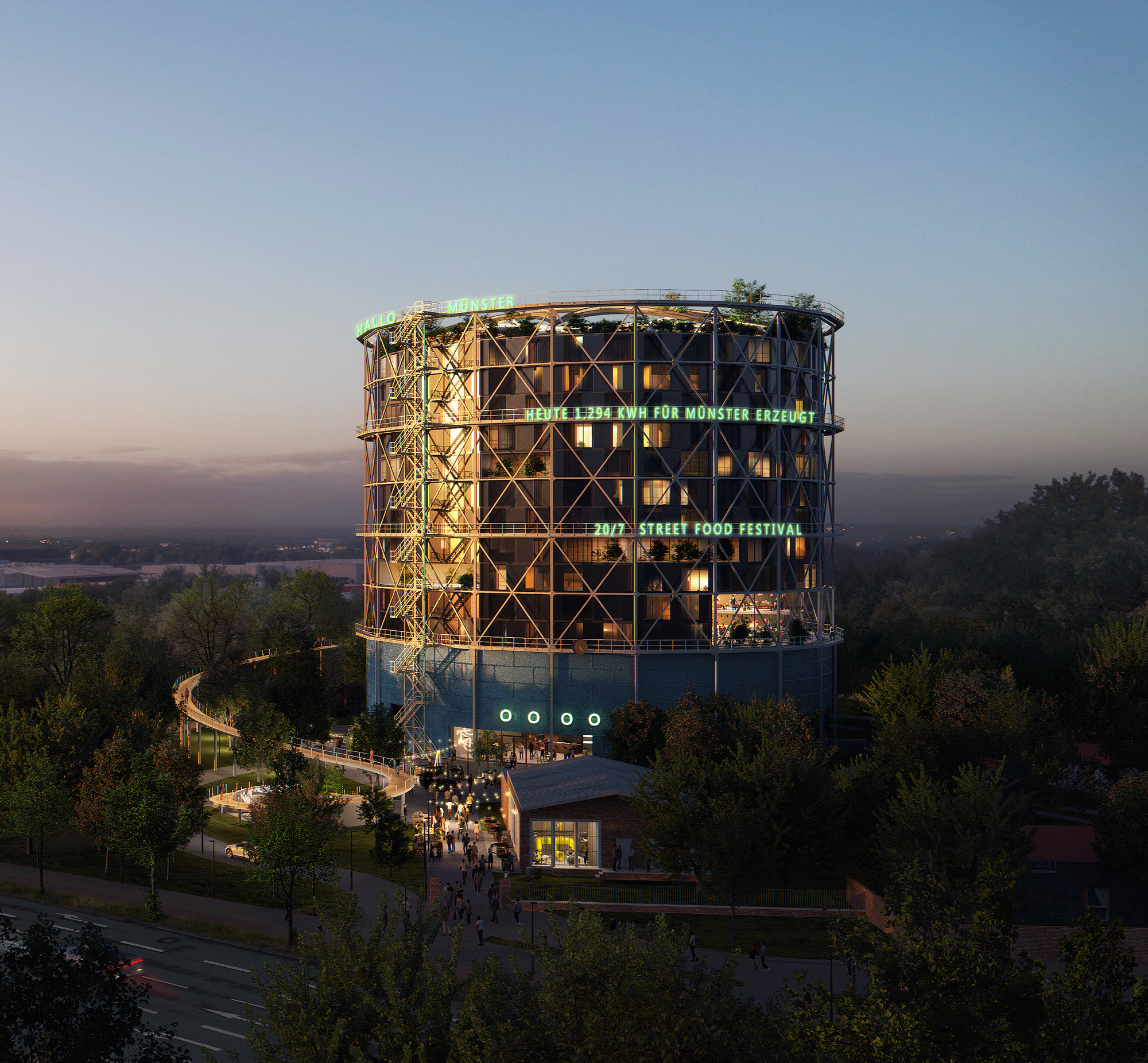
Münster’s Gasometer, once a symbol of the city’s industrial past, is undergoing a dramatic transformation into a sustainable, community-focused landmark.
The redevelopment is anchored by three core principles: fostering community, prioritizing sustainability, and preserving the building’s heritage. The original steel structure serves as the foundation for a new, timber-clad interior that minimizes the project's carbon footprint. Equipped with solar panels and rainwater harvesting systems, the Gasometer is designed to be energy self-sufficient and contribute to Münster’s sustainability goals.
Beyond environmental stewardship, the Gasometer aims to enrich the lives of its residents. A diverse range of amenities, including a swimming pool, theater, and health center, will be integrated into the building, creating a vibrant and inclusive community hub.
Architect: Mei architects and planners + Peter Bastian Architekten
Location: Münster, Germany
CABN Vision Plan
by B+H | Ethics and Values Winner
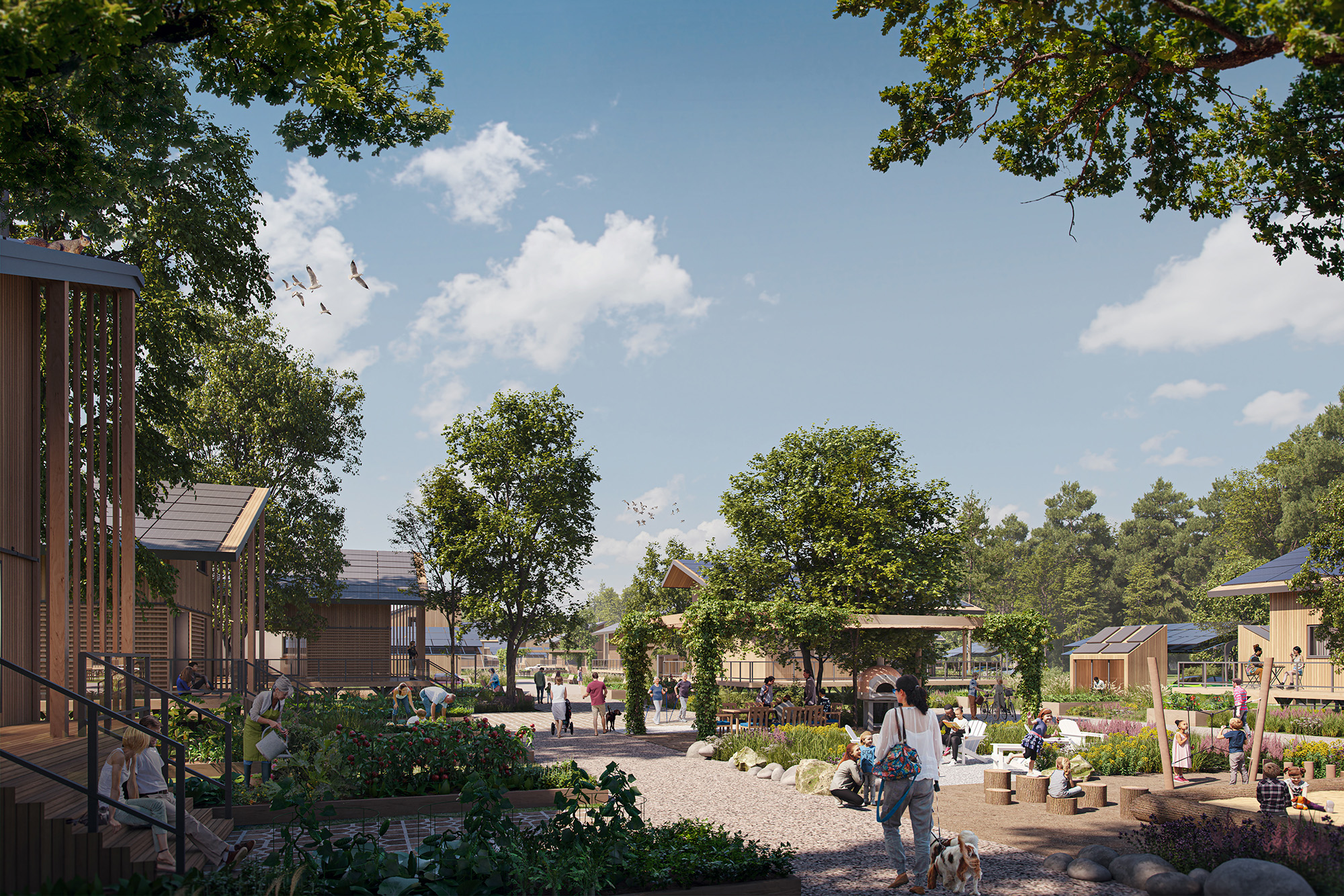
The CABN Vision Plan is reimagining community living through sustainable, innovative housing. Located in Augusta Township, Ontario, this project seeks to address housing needs while preserving the environment.
CABN, a leader in energy-efficient modular homes, partnered with B+H Biomimicry to scale their technology from individual units to a complete, self-sufficient neighborhood. B+H Biomimicry's "Living Story" approach has shaped the project, focusing on harmonizing development with the natural landscape. This vision includes restoring habitats, providing affordable housing, and fostering biodiversity on previously unused land.
To encourage community cohesion and self-reliance, the plan incorporates clustered housing with shared amenities. Each cluster features decentralized energy storage and water collection systems. Residents can collaborate on activities like gardening and shared meals in central community spaces.
CABN homes maximize energy efficiency through design elements such as orientation, window placement, and solar power. Combined with community batteries, rainwater harvesting, and modular wastewater treatment, these homes and infrastructure create a sustainable, low-carbon footprint community. Walkable neighborhoods further enhance community engagement and reduce energy consumption.
Architect: B+H
Location: Augusta Township, Ontario, Canada
AGRITECTURE Greenhouse Living
by tHE gRID Architects | Food Winner
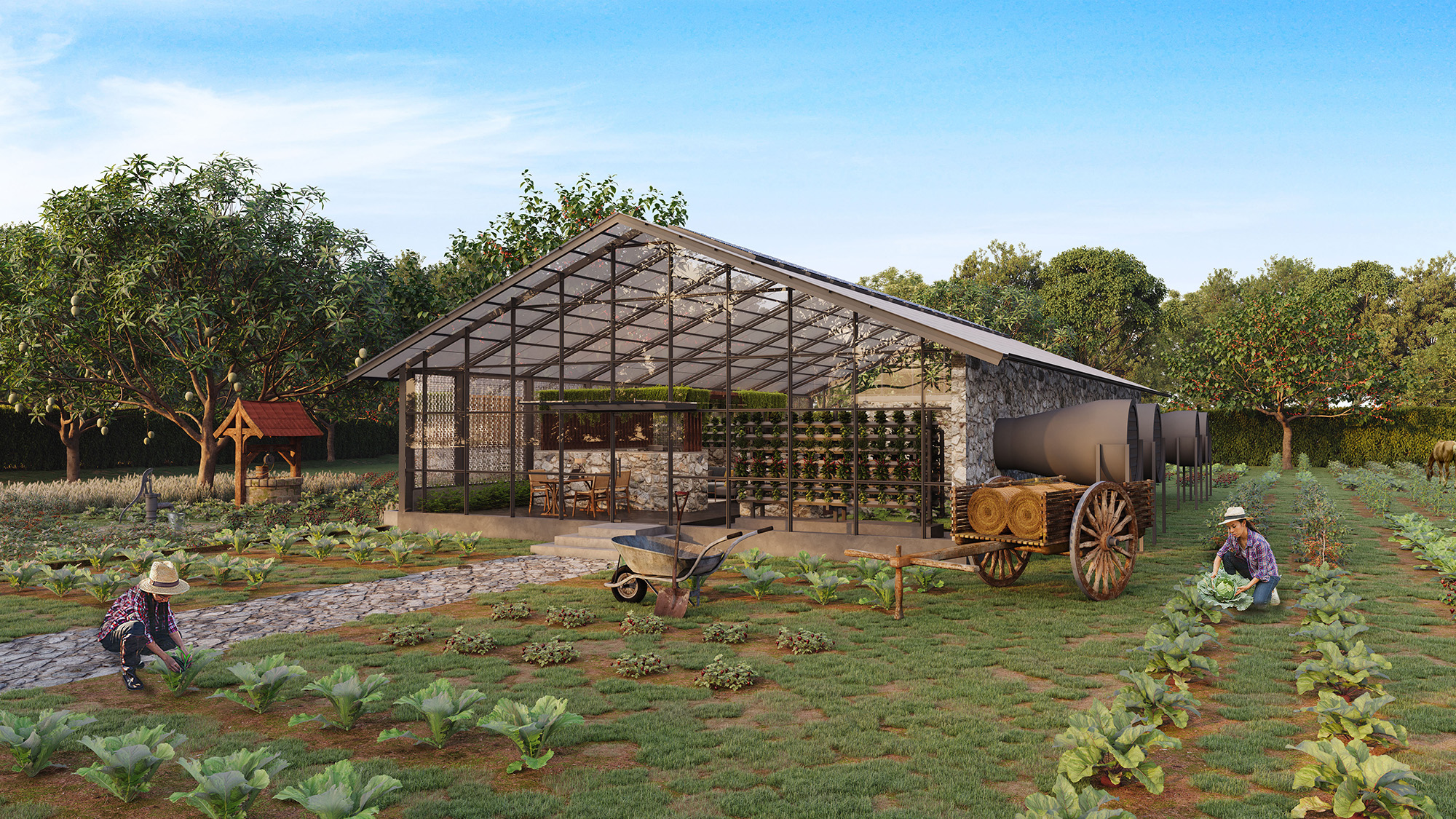
AGRITECTURE is a visionary approach that reimagines urban living by merging architecture with agriculture. By transforming greenhouses into dynamic habitats, we can create sustainable spaces that coexist harmoniously with nature.
These designs prioritize reclaimed materials and energy-efficient technologies to minimize environmental impact. Utilizing reclaimed wood, mild steel, and polycarbonate, AGRITECTURE structures are both durable and luminous. Hydroponic systems revolutionize urban farming by cultivating plants without soil, optimizing resource use and enhancing plant growth.
Beyond aesthetics, AGRITECTURE offers numerous benefits. Reduced carbon footprint, improved air quality, and enhanced mental well-being are just a few advantages. This innovative concept demonstrates a symbiotic relationship between humans and the environment, redefining the sustainable home. AGRITECTURE advocates for integrated, responsive urban living, where architectural creativity and agricultural practicality converge to create spaces that nurture both people and the planet.
Architect: tHE gRID Architects
Location: Ahmedabad, India
RAMSBURG
by Dome+Partners | Re-use Winner
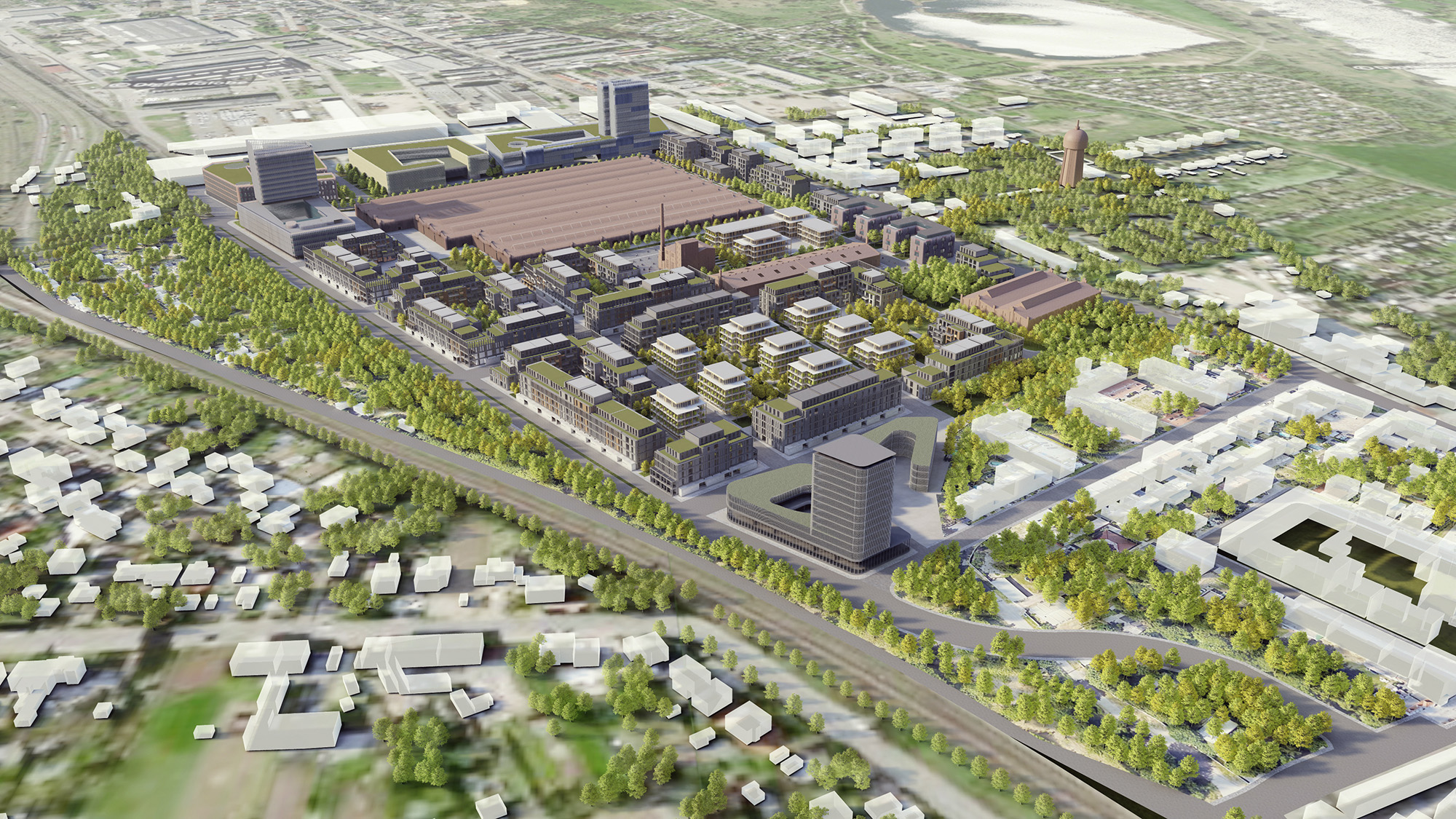
Once a neglected 26-hectare industrial wasteland, Magdeburg’s RAW site is now undergoing a transformative revitalization with the RAMSBURG project. Designed with a strong focus on user experience, the project prioritizes the adaptive reuse of existing structures.
The heart of RAMSBURG is a cluster of historic buildings and hangars, intersected by two main pedestrian thoroughfares. These axes serve as the backbone of the development, lined with a diverse mix of public spaces, including markets, museums, event venues, sports facilities, co-working areas, restaurants, and recreational zones.
Surrounding this central hub, four to seven-story residential buildings form a vibrant neighborhood. Characterized by varied facades and industrial color palettes, the residential architecture complements the site's industrial heritage. A green belt incorporating preserved hobby gardens and new plantings buffers the area from the nearby railway, creating a tranquil environment.
Architect: Dome+Partners, Noname Studio, Skab, MetaArchitektur, and GmbH
Location: Magdeburg, Germany
Knowledge Economic City
by DLR Group | Smart Cities Winner
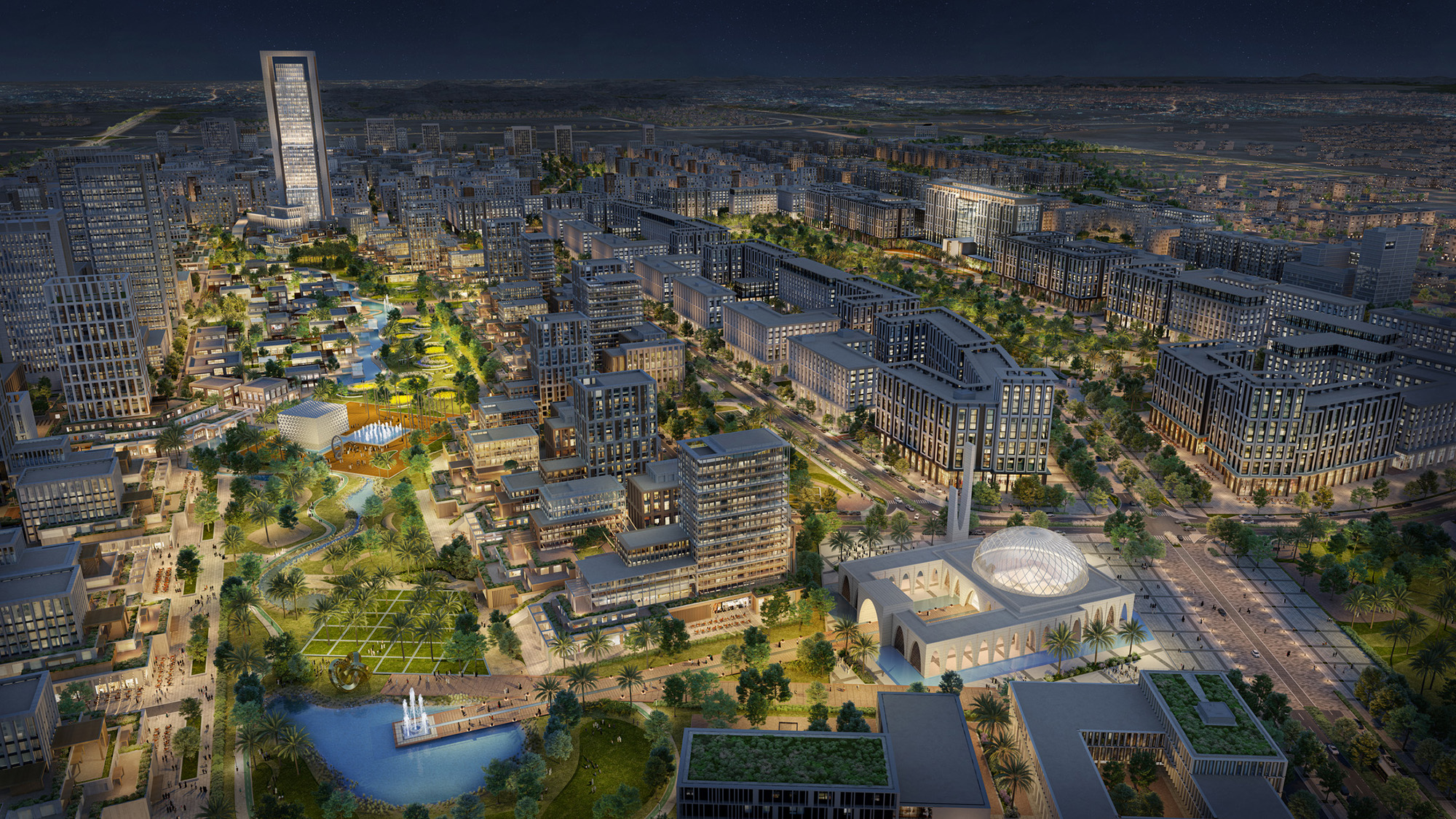
Knowledge Economic City (KEC) represents a departure from the region’s typical development model, which prioritizes large-scale, market-driven projects. Instead, KEC focuses on building a city around existing institutions and fostering innovation through collaboration. By connecting these institutions with technology businesses, knowledge industries, and the local community, KEC aims to create a vibrant, productive urban environment.
KEC emphasizes sustainability through a transit-oriented approach, centering the development around a high-speed rail station and promoting active transportation. This strategy brings together businesses, services, and residents in a connected, high-performance community that caters to the needs of today's skilled workforce.
The heart of KEC's design is a network of high-quality parks that connect the city's neighborhoods. This approach places leisure and well-being at the core of the community.
Architect: DLR Group
Location: Madinah, Saudi Arabia
Related Stories
Affordable Housing | May 30, 2024
General contractor’s keys to a successful affordable housing project
General contractors can have tremendous influence over a project’s success in terms of schedule, budget, and quality. However, to ensure a project is put on this path, there are a few factors that must be considered.
MFPRO+ New Projects | May 29, 2024
Two San Francisco multifamily high rises install onsite water recycling systems
Two high-rise apartment buildings in San Francisco have installed onsite water recycling systems that will reuse a total of 3.9 million gallons of wastewater annually. The recycled water will be used for toilet flushing, cooling towers, and landscape irrigation to significantly reduce water usage in both buildings.
MFPRO+ News | May 28, 2024
ENERGY STAR NextGen Certification for New Homes and Apartments launched
The U.S. Environmental Protection Agency recently launched ENERGY STAR NextGen Certified Homes and Apartments, a voluntary certification program for new residential buildings. The program will increase national energy and emissions savings by accelerating the building industry’s adoption of advanced, energy-efficient technologies, according to an EPA news release.
Student Housing | May 28, 2024
Student housing remains strong in May 2024
Although the pace has slowed down this year, student housing preleasing for the 2024–2025 season reached 73.5% in April, 50 basis points year-over-year (YOY).
MFPRO+ News | May 24, 2024
Austin, Texas, outlaws windowless bedrooms
Austin, Texas will no longer allow developers to build windowless bedrooms. For at least two decades, the city had permitted developers to build thousands of windowless bedrooms.
Mass Timber | May 22, 2024
3 mass timber architecture innovations
As mass timber construction evolves from the first decade of projects, we're finding an increasing variety of mass timber solutions. Here are three primary examples.
Mixed-Use | May 22, 2024
Multifamily properties above ground-floor grocers continue to see positive rental premiums
Optimizing land usage is becoming an even bigger priority for developers. In some city centers, many large grocery stores sprawl across valuable land.
MFPRO+ News | May 21, 2024
Massachusetts governor launches advocacy group to push for more housing
Massachusetts’ Gov. Maura Healey and Lt. Gov. Kim Driscoll have taken the unusual step of setting up a nonprofit to advocate for pro-housing efforts at the local level. One Commonwealth Inc., will work to provide political and financial support for local housing initiatives, a key pillar of the governor’s agenda.
MFPRO+ News | May 21, 2024
Baker Barrios Architects announces new leadership roles for multifamily, healthcare design
Baker Barrios Architects announced two new additions to its leadership: Chris Powers, RA, AIA, NCARB, EDAC, as Associate Principal and Director (Healthcare); and Mark Kluemper, AIA, NCARB, as Associate Principal and Technical Director (Multifamily).
MFPRO+ News | May 20, 2024
Florida condo market roiled by structural safety standards law
A Florida law enacted after the Surfside condo tower collapse is causing turmoil in the condominium market. The law, which requires buildings to meet certain structural safety standards, is forcing condo associations to assess hefty fees to make repairs on older properties. In some cases, the cost per unit runs into six figures.


















